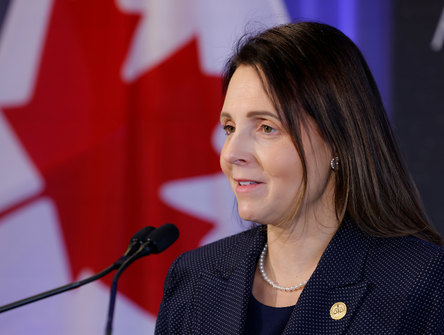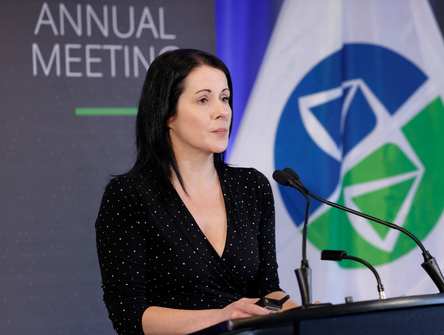Moving beyond diversity and inclusion
Some suggestions to work towards equity in the legal profession.

Lawyers still face great barriers to entering and remaining in the profession due to disparities based on intersectional disadvantage. This has been all too evident to me as a lawyer who is a racialized, Muslim, and young mother from a lower socioeconomic background. I have, and continue to, face microaggressions and disadvantage based on intersectional identities. My privilege as a lawyer who received her law degree in Canada has also been all too obvious to me.
Last year, I wrote about how Alberta’s suspension of its Continuing Professional Development (CPD) requirements provided a perfect opportunity to develop mandatory anti-racism education as part of lawyer formation, noting what a non-mandatory alternative would also look like. Looking back on the year since my 2020 article, the Alberta bar has made significant progress on diversity and inclusion. However, work still needs to be done to truly advance towards equity.
The CBA Alberta’s EDI Committee spearheaded and promoted webinars providing equity, diversity, and inclusion (EDI) education this year, with attendees tuning in nationwide. From May to July 2021, the committee presented a three-part EDI webinar series, the recordings of which are a helpful continuing education resource.
The first webinar was on anti-racism education for legal professionals, presented by Niki Bains and Sylvie Vigneux of the Anti-Racism Bookshelf. Moving beyond a diversity and inclusion lens, the presenters showed attendees how to identify and intervene in systemic racism in their legal practice. They modelled how to reflect on one’s own intersectional disadvantage and advantage, educated on key definitions, and guided attendees through a case study.
The second webinar was on bystander intervention, presented by Dori Palmiere and Chris Buchner of the Centre for Sexuality. Attendees were taught gender and sexual diversity terms, including gendered pronouns. The presenters discussed power, privilege and intersectionality and resulting systemic barriers. They demonstrated concrete strategies to intervene as engaged bystanders when witnessing discrimination and identity-based harassment.
The final webinar in the series was on effective allyship, presented in partnership with Women in Law Leadership Awards, with Dr. Koren Lightning-Earle, Dr. Chidinma Thompson, and Dr. Farha Shariff as panelists. The panelists had a frank discussion about their lived experiences and allyship. Attendees learnt how to move beyond performative allyship.
In addition to education, safe spaces for diverse lawyers and law students to seek support and mentorship are important. The CBA Alberta’s EDI Committee presented a virtual coffee series in which diverse lawyers spoke about EDI issues and their lived experiences practicing law. From September to November 2021, three virtual coffee sessions have been held – one in business law, the second in civil litigation, and the third in family law. These sessions were not recorded so that attendees could feel truly open and comfortable sharing.
Diverse lawyers also need to be given the platform to share their recommendations of how the profession needs to be changed. The CBA Alberta’s Engagement of Women in the Profession Roundtable, in partnership with the International Association for Women Judges and the Law Society of Alberta, was an event allowing for this in the context of gender. Attendees heard from four women in the profession, Katrina Edgerton-McGhan, Kanchana Fernando, Corie Flett, Q.C., and Amna Qureshi. Then, the attendees brainstormed actual concrete suggestions for policies and changes at the firm and regulator level to remove barriers for women in the profession. The roundtable and breakout rooms were focused on practical solutions to gender-specific problems that have been known to exist in the legal profession for decades.
The Law Society of Alberta has also been active with EDI initiatives. The Law Society formed an EDI Advisory Committee and created the new position of Equity, Diversity and Inclusion Counsel. Susannah Alleyne, EDI counsel at the Law Society, has written about why EDI is essential to the health of the profession. While still in the process of developing a more holistic competency framework for CPD, the Law Society has introduced a mandatory indigenous cultural competency course, the Path, and highlighted the rampant discrimination in the profession through the My Experience Project.
All this work on the EDI front this past year has been remarkable in raising awareness of barriers faced by historically disadvantaged groups in the profession. But we need to go beyond diversity and inclusion and work towards true equity. Diversity is about having historically disadvantaged groups at the table (recognizing differences), inclusion is about these groups truly being accepted at the table (appreciating differences), and equity is about these groups truly being equal at the table. Equity is about allocating resources and opportunities to these historically disadvantaged groups based on their differences to reach an equal outcome.
Here are some suggestions to work towards equity in the profession:
- Collaborations between BIPOC, gender, disability, and LGBTQ2S+ organizations, with CBA Alberta, and the Law Society of Alberta to develop continuing legal education that addresses anti-racism, anti-discrimination, unconscious bias, cultural competency, mental health, and intersectional inequities in the law. Diverse groups must not only be given a seat at the table as advisors, but provided the opportunity to shape the curriculum.
- The Law Society of Alberta could provide an Inclusive Workplace Manual to all employers in the legal profession and require them to adopt the policies in this manual. Employers could choose from different versions of the same policies based on the type of workplace/employee preference (i.e. parental leave, religious accommodation, flexible work arrangements, etc). This can be developed from updating and combining the Law Society’s Respectful Workplace Policy and the CBA Alberta’s Inclusive Workplace Toolkit.
- Make safe spaces, mentorship, and wellness resources accessible to all groups of lawyers who face barriers. Solo practitioners, small firm lawyers, and foreign trained lawyers face significant barriers to these resources versus lawyers employed with larger employers.
Alberta has seen progress on EDI initiatives in the legal profession this past year. But it is only a start, we need to keep this momentum and continue to work towards meaningful change even when this topic is not “trendy” or “in-focus” anymore.


